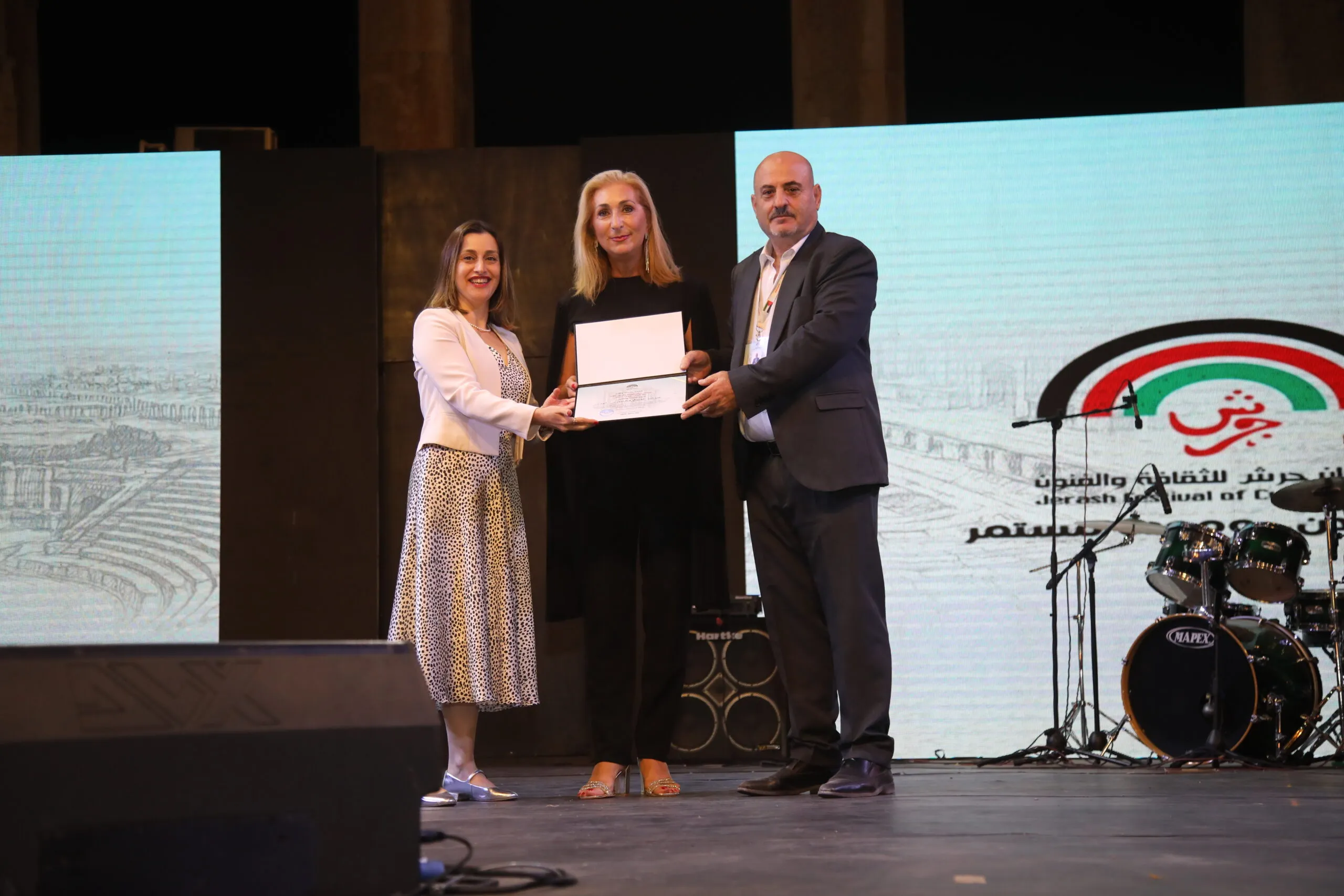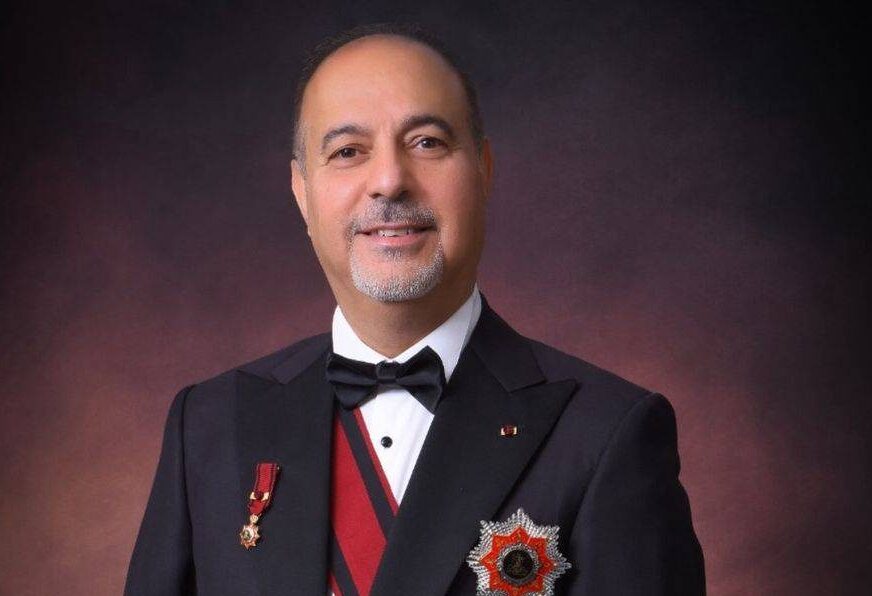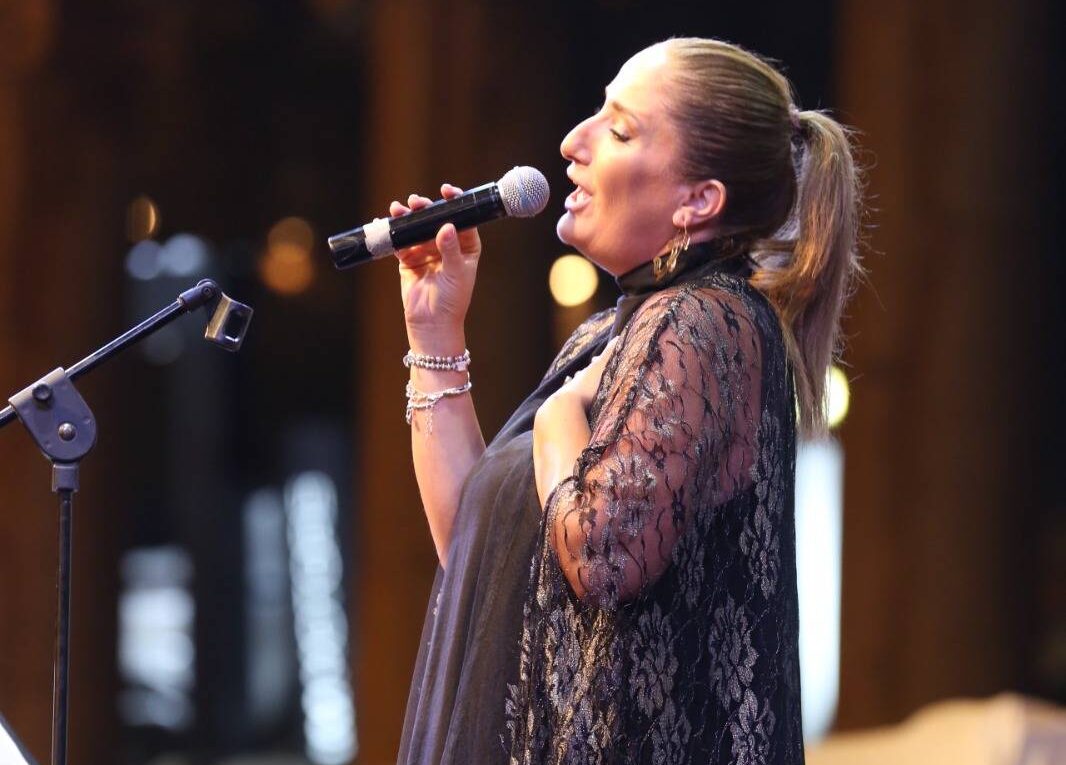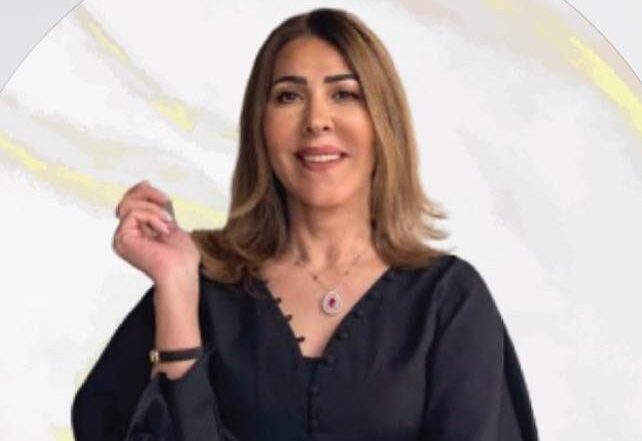Echoes of Civilization, a Voice Beyond Borders
Exclusive Interview | Jerash Festival 2025 | Anovia Magazine
Every summer, the ancient city of Jerash revives its former glory, transforming into an open-air stage where time itself seems to converge. Among towering columns, arcaded streets, and whispering domes, the site becomes a living canvas shaped by the Jerash Festival of Culture and Arts, which has been celebrating Jordan’s rich heritage since its inception in 1981, inviting the world to witness its creative pulse.
Over more than four decades, the festival has grown far beyond a local celebration, becoming a cultural beacon that draws thousands of visitors from across the globe. From folkloric dances and Arabic chants to classical music, theatrical performances, and poetry readings, the festival weaves bridges between cultures, turning every performance into a dialogue across centuries, where past and present meet in a single moment of artistic expression.
Today, the Jerash Festival stands not only as a testament to Jordan’s cultural identity but as a global symbol of artistic celebration and human expression. In this setting, the voice of world-renowned mezzo-soprano Alexandra Gravas rose above the Roman amphitheater, transforming her concert into more than a musical evening—it became a living conversation between civilizations, carrying a message that transcends borders and touches hearts.
Gravas, an artist who has graced stages from the farthest West to the farthest East, brought her program HORIZONS to Jordan, blending music, memory, and meaning into an evening that will remain etched in memory.
In this exclusive conversation with Anovia, Alexandra opened her heart to speak about the power of place, the role of music as a bridge for cultural exchange, and the voice she carries—as an artist, a mother, and a human being whose story knows no borders.
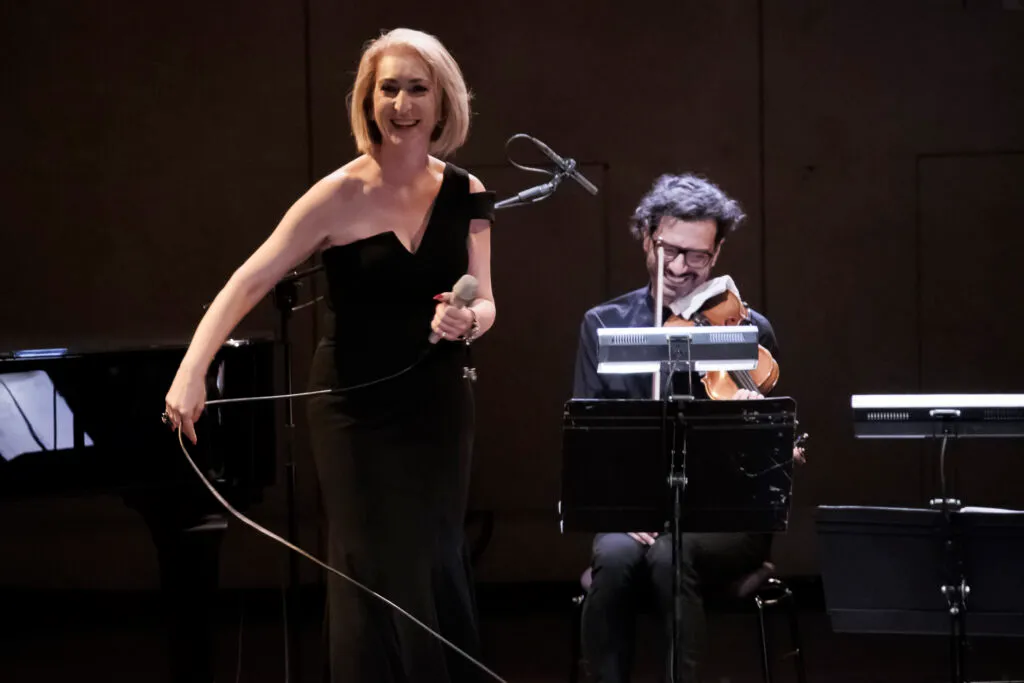
Anovia: How would you describe your experience performing at Jerash Festival 2025, surrounded by Jordan’s ancient Roman architecture and rich cultural history?
Alexandra Gravas:
I must admit, that when I went for the sound check the night before the concert, I was overwhelmed by its power and beauty. The site is stunning and vast. The Temple of Zeus—my God. Truly powerful. I kept repeating to myself, “Where am I?” The beauty was unbelievable.
But don’t forget, knowing that Jerash was built by Alexander the Great makes me feel very proud as a Greek. Jerash is a melting pot of great civilizations, and we today—the people of 2025—are still able to enjoy the glory of this well-preserved place. I wish I had had more time to see everything in detail and spend a whole day just studying the site. For sure, I will be back to this amazing place.
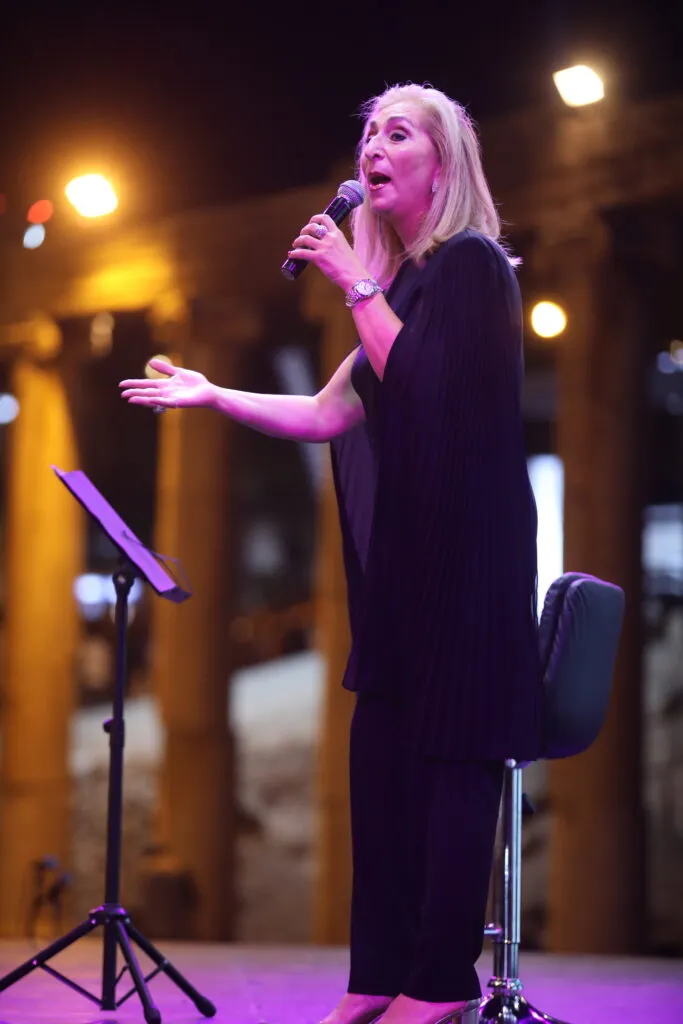
Anovia: What emotions did you feel stepping onto a stage that blends art with archaeology, and how did the Jordanian audience receive you?
Gravas:
I feel very proud to be asked to perform at these special archaeological sites. Besides Jerash, I have been lucky to perform two times at the Roman Agora of Athens—something that does not happen every day. A milestone in one’s career, especially as a Greek.
The stones and the columns—they are telling their own stories. They are alive with the preserved energy of centuries! If you keep still, you can feel them. That for sure influences your performance, and it makes you humble as an artist. At least, this happens to me!
The audience was very enthusiastic and open.
Anovia: Did your performance in Jerash offer a new perspective on cultural exchange through music? What stayed with you most from that night?
Gravas:
That evening—and the whole happening—reminded me again that I am on the right cultural track with my concert programs and my philosophy in general regarding my artistic life.
Cultural exchange is vital—like the oxygen we breathe. People have to be introduced as much as possible to the music of different cultures. Basically, building bridges with music can sometimes have a much more lasting effect on people than words. In my opinion, this is the major player in a festival. It gives the unique opportunity for people to hear, in a short period of time, something new that broadens their musical horizon. No matter one’s background, there is always something new to discover in music.
Having said that, HORIZONS is the concert title of my latest project, which I presented at the Jerash Festival and in many other countries including Germany, Peru, Mexico, Greece, and Kuwait.
Anovia: You’ve built a unique career that spans genres, languages, and continents. What do you believe shaped your voice—not just musically, but emotionally and spiritually?
Gravas:
Surely it is the experience! Experiences are collected in each performance, in various countries and locations, with different people and their cultures. So far, I have been lucky to have experienced a lot of that in my concerts.
The concert platform gives the performer the chance to interact—through the songs—with the audience. This is what I like. And this is why I changed from being an opera singer to a concert-entertainer singer. Each experience on stage shapes your emotions and your spirit. Being a singer is being a human. I carry my instrument every day of my life with me—it is me.
Anovia: You are not only a renowned mezzo-soprano, but also a proud mother. How has motherhood enriched your music—or changed the way you connect to it?
Gravas:
Being a mother made me even stronger. Experiencing the essence of giving life was life-changing for me in every aspect. It gave me the strength to make the shift in my career and finally make my dream come true—to give it a go and develop my own concert projects and themes, regardless of musical genres. I finally became me.
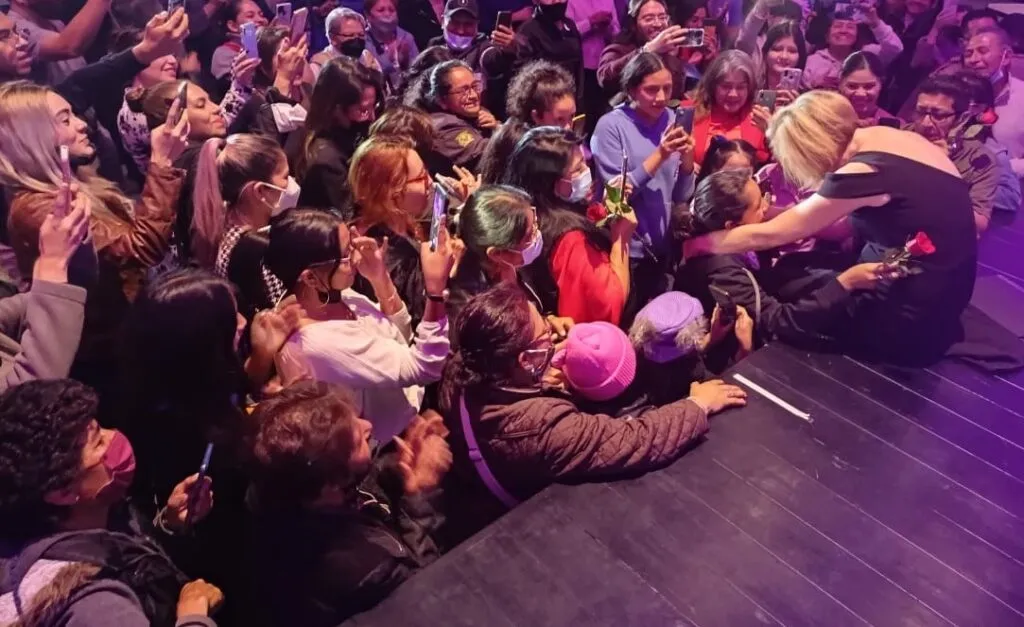
Anovia: Fame can be fleeting, but you’ve built a career that is both loved and lasting. What keeps you grounded, and what continues to inspire you?
Gravas:
Knowing who you are—and admitting it to yourself. That is the key. Nothing can be done by accident. I do not believe in accidents. I believe in goals and hard work. Anything else is superficial and cannot last for long. Steadiness can be a key factor for achievement.
Fame—I don’t have any relation to that word. You know, when I was a teenager full of dreams of becoming a singer, I was diagnosed with paralysis of my left vocal cord. In order to recover, I had to stop talking. At that time, my doctor did not know if we would succeed—or how long it would take. I did not speak a word or make a sound for one and a half years.
At the end, I was cured. And I had to start all over again, at the tender age of 19, to learn to talk and to sing.
How can I dream of fame? I can only dream of fulfilling my passion to sing.
Anovia: What advice do you give—not only as an artist—but as a woman and mother whose voice has crossed borders and hearts?
Gravas:
Follow your heart, and never neglect your dreams. They might seem far and unreachable at the time, but if you work hard, you will get closer every day. My story says it all—from where I started, to where I am now, and where I am still walking toward.
In Jerash, Alexandra Gravas did more than sing—she awakened the very echoes of the ancient site with her voice. In her music, past and present converge, and in her presence we are reminded that art, at its highest form, is a vessel of memory, courage, and human connection. Her voice filled the night sky above the Roman amphitheater, yet its resonance will linger far longer.
And most recently, on September 26, Gravas released her latest single, El Condor Pasa, continuing her artistic journey. Congratulations to Alexandra Gravas on this new achievement.

